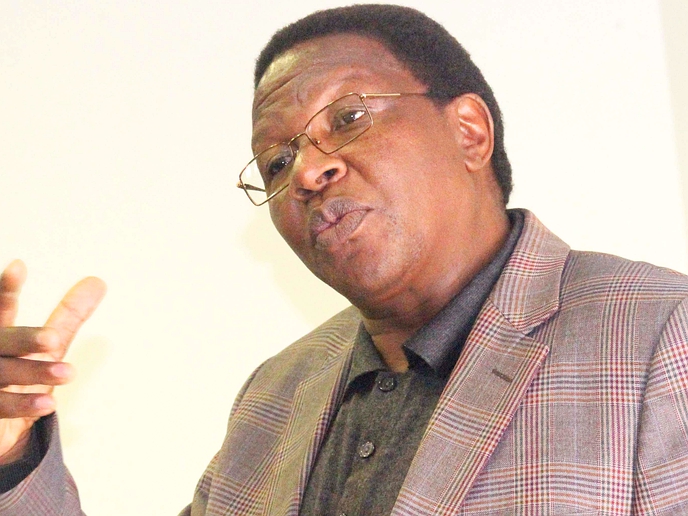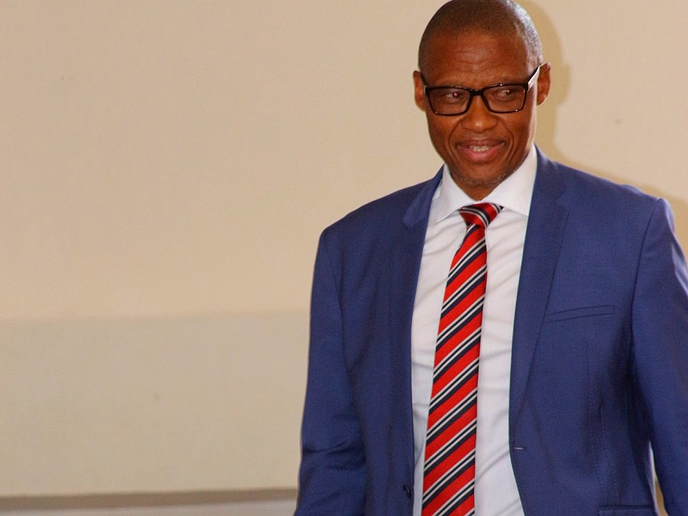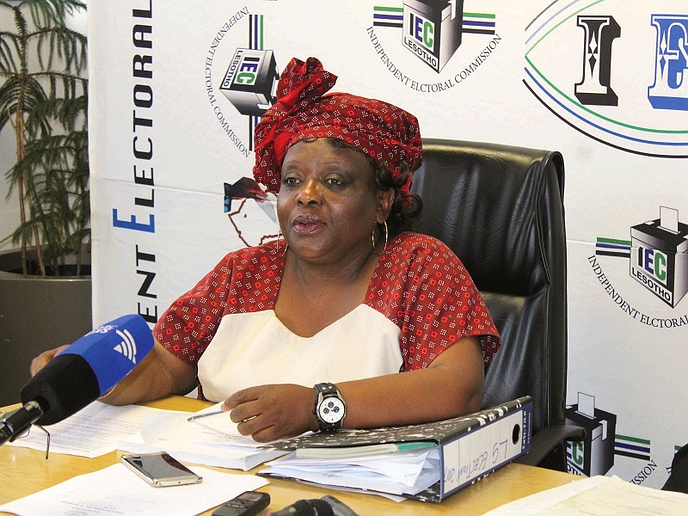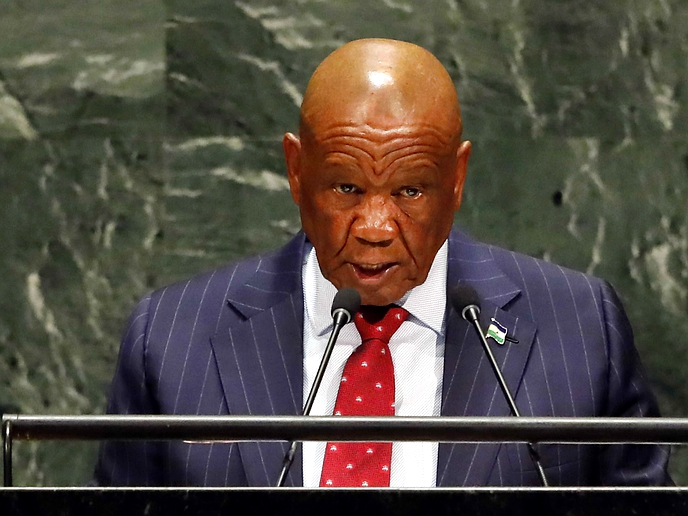Prime Minister Thabane says prorogation is due to Covid-19 In a letter to King Letsie III on March 20, Prime Minister Thomas Thabane says his prorogation of parliament has been necessitated by prevalence of Corona virus (Covid-19) and there is no mention of the reigning political situation in the country. In a story Metro reported earlier, there were no clear reasons for prorogation of parliament except the surrounding situation during which the prorogation is proclaimed. Dr Thabane says: “Pursuant to section 83 (1) and (4), I advise your Majesty to prorogue the 10th Parliament of Lesotho with effect from 20th March, 2020 to 19th June, 2020.
news
March 21, 2020
STAFF REPORTER - Story with additional information
5 min read
Prime Minister Thabane suspends parliament
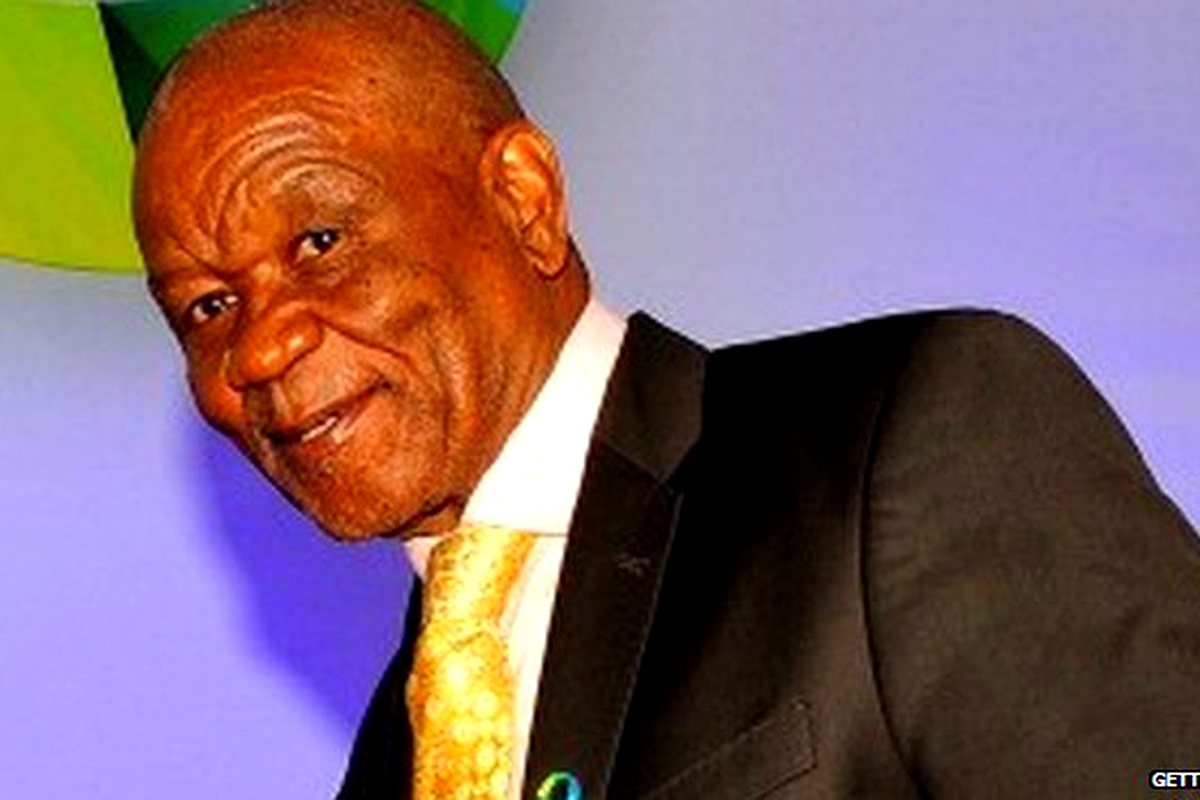
Lesotho's Prime Minister Thomas Motsoahae Thabane
“Your Majesty, due to prevalence of Corona virus (COVID-19) which has been delclared a pandemic by the World Health Organisation (WHO) it is advisable not to have large gatherings of people in order to avoid the spread of the virus. It is on this basis, Your Majesty, that I advise Your Majesty tom prorogue the 10th Parliament of Lesotho.
“If it pleases Your Majesty to accept this advice, I attach here with legal instrument for Your Majesty’s signature.
“Due to the sensitivity of the matter, may it please Your Majesty to treat this matter with the urgency that it deserves. Your Majesty is hereby advised to act in accordance with my advice before 9.00pm today the 20th March, 2020. Your Majesty’s most obedient Servant.”
Metro’s earlier story follows below:
Amidst chaos that is likely to degenerate into the chambers of parliament following his announcement to retire from government, Prime Minister Thomas Thabane has suspended parliament with effect from March 20 until June 19 2020.
Dr Thabane has proclaimed a prorogation through legal notice No. 20 of 2020, that “the Tenth Parliament of Lesotho shall stand prorogated (prorogued) with effect from 20th March to 19th June 2020. Prorogation is the action of discontinuing a session of a parliament or other legislative assembly without dissolving it and it is normally proclaimed when the government has lost control in such a manner that necessitates the prorogation of parliament.
Enjoy our daily newsletter from today
Access exclusive newsletters, along with previews of new media releases.
After Dr Thabane, 80, announced to the public that he is stepping down as prime minister by June this year and asked his ruling All Basotho Convention (ABC) to select the successor, there has been instead an ongoing fierce power struggle within his party.
The ABC is in a four-party coalition government with three other political parties; Alliance of Democrats (AD) led by Dr Monyane Moleleki, Basotho National Party (BNP) led by Chief Thesele ‘Maseribane and Reformed Congress of Lesotho (RCL) led by Ms Keketso Rantso.
Dr Thabane warned his followers that if they failed to produce a common successor, he would decide for them. His expectation was to have an agreed name within at least a month but up to now there is no consensus, leading to him making attempts to put up a new coalition by inviting some opposition parties into the power sharing, especially Lesotho Congress of Democracy (LCD) led by Mr Mothetjoa Metsing and Movement for Economic Change (MEC) led by Mr Selibe Mochoboroane.
However, the other faction of his party did not like it and decided to forge their own coalition with the main opposition Democratic Congress (DC) led by Mr Mathibeli Mokhothu. DC is the party founded by the former Prime Minister of Lesotho, Dr Pakalitha Mosili who stepped down from the leadership for Mr Mokhothu.
While the ferocious and near violent crisscrossing and horse trading is ongoing, ordinary members and members of parliament of the biggest seven political parties in parliament have been exchanging insults on radio waves and on social media, sparking a fear that given a chance to face in each in parliament, they might bring the house to a bloody chaos as it happened in 2019 when members of parliament vandalized parliament property after they turned every object into missiles and wounded each other over wool and mohair regulations.
The three opposition parties in parliament that have been recruited into coalitions have not yet pronounced themselves if they agree to a coalition or not and if they do, what would be their conditions.
The prorogation of parliament comes at a time when DC has called its constituency leadership from around the country for an emergency meeting where it is thought the agenda is to seek mandate for the party’s executive leadership to join a coalition or not.
The prorogation comes two days after Dr Thabane declared state of emergency on Coronavirus and put in place measures that are intended to curb its spread in the country such as restricting movement of people in and outside the country, closing of schools and suspending all activities that require people to gather in more than a number 100 at the same time and place.
Last week the lower house had passed a bill that prohibit prime minister to call for elections if he or she faces vote of no confidence and loses majority in parliament but to allow change of leadership in parliament. However, the bill was still supposed to go the higher house, Senate, before it returns to the lower house for final reading and enactment into law.
Lesotho has gone for three elections within a term of five years since 2012.
Now that the parliament has been prorogued, it means the bill can no longer go through the process of second reading and according to the parliament standing orders, all the business of the parliament falls off when new parliament comes in, such as bills, motions and questions, among others.
Depending on the outcome of the DC emergency meeting, whether they agree to go into coalition with the faction of the ABC or not, some sympathisers of the intended new coalition with the DC suggest that the prorogation must be challenged in the courts of law on the basis of being unconstitutional.
The challenge would take a leaf from the court of England which ruled that prorogation would be unlawful if it has the effect of frustrating or preventing without reasonable justification the power of parliament to carry out its constitutional functions as a legislature and as a body responsible for supervision of the executive.
Tailored for you



